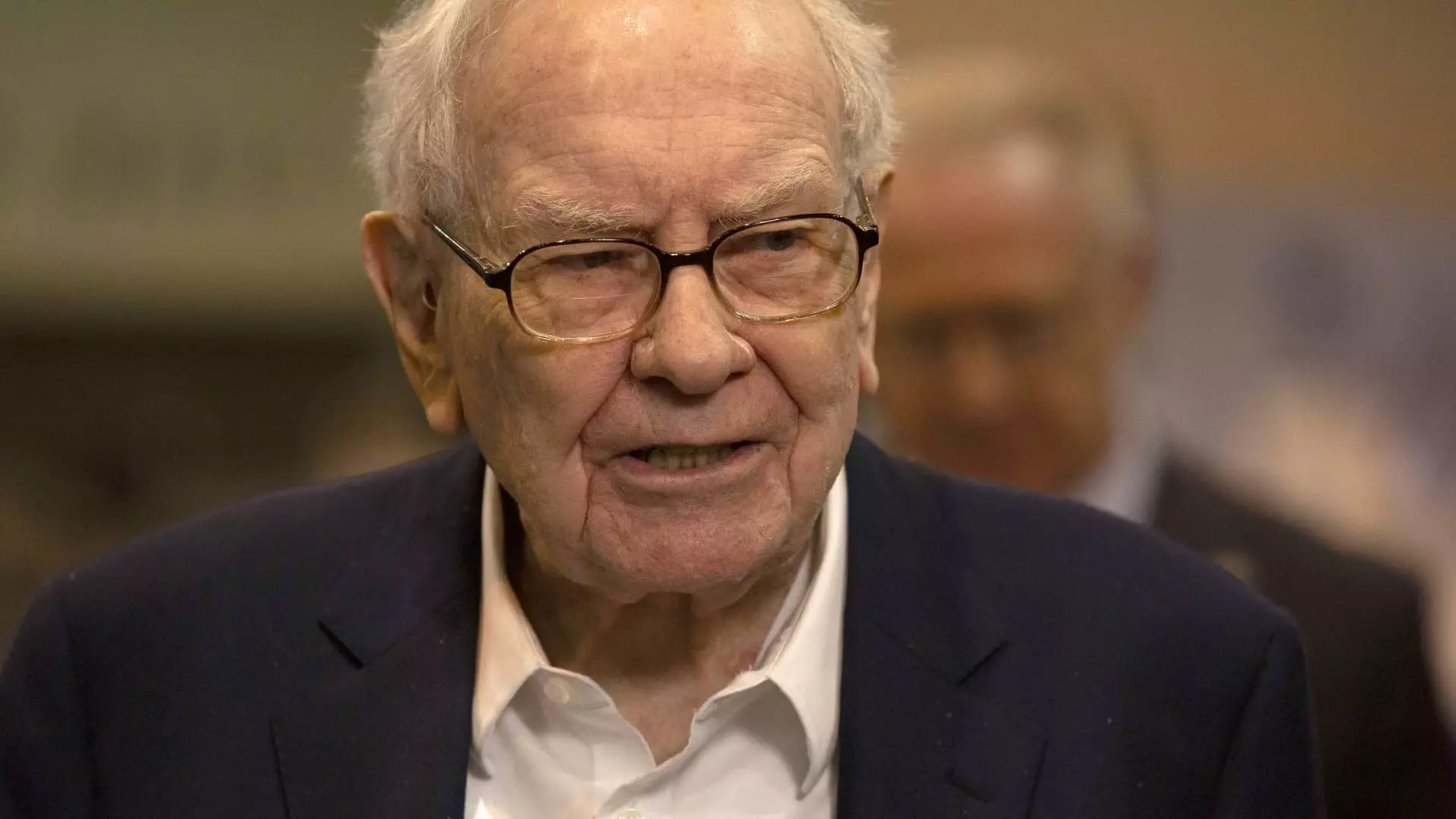In the third quarter, Berkshire Hathaway witnessed an unprecedented surge in its cash reserves, amassing a whopping $325.2 billion—an increase from $276.9 billion in the previous quarter. This colossal accumulation is part of a broader strategy employed by Warren Buffett, the 94-year-old chairman and CEO known colloquially as the “Oracle of Omaha.” The substantial cash reserves raise questions about the company’s investment strategy and future directions, especially in light of ongoing fluctuations in the stock market.
Buffett’s decision to sell off large portions of his equity holdings, specifically his stakes in major giants like Apple and Bank of America, reflects a cautious approach amidst market volatility. Berkshire Hathaway’s decision to divest nearly 25% of its substantial Apple investment marks the fourth consecutive quarter of reducing this stake, indicating a deliberate strategy to potentially realign the company’s portfolio. Additionally, Buffett has taken in over $10 billion from unloading Bank of America shares since mid-July, clearly underscoring a trend of refraining from long-term commitments to previously valued equities.
Contrary to what might be expected of a buoyant company with newfound cash reserves, Berkshire Hathaway’s repurchase activity has significantly slowed. During the third quarter, the conglomerate did not execute any buybacks. Earlier in the year, company buybacks had already dwindled, with only $345 million allocated to repurchases in the second quarter, compared to $2 billion in each of the two preceding quarters. This reduction raises concerns about the company’s confidence in its stock valuation and future performance prospects.
Buyback strategies typically signal a company’s belief that its shares are undervalued, yet the current environment suggests a recalcitrance on Berkshire’s part to allocate cash in this way. The company maintains that it will enter into buybacks only when it believes that the shares are priced below their intrinsic value—a conservative measure that aligns with Buffett’s historical aversion to high-risk investments.
Market Performance: Outpacing Competitors
Despite the cautious sell-offs and lack of buybacks, Berkshire Hathaway’s Class A shares have performed admirably, rising by 25% this year compared to a 20.1% increase in the S&P 500. The company also marked an impressive achievement by surpassing a $1 trillion market capitalization for the first time, further solidifying its position as a titan in the investment community. However, behind these figures lie complexities that could jeopardize this performance.
Berkshire Hathaway’s operating earnings totaled $10.1 billion in the third quarter, down about 6% from the previous year due to challenges in the insurance underwriting segment. This figure fell short of analysts’ estimates, revealing an underlying instability that investors should take seriously. An exploration of operating earnings suggests that while high cash reserves can indicate strength, they can also signal a lack of viable investment opportunities, which may lead to stagnation in growth.
The backdrop against which Buffett operates is filled with economic uncertainties, including fluctuating interest rates and concerns over a burgeoning fiscal deficit. The Federal Reserve’s actions, including interest rate cuts intended to foster economic growth, have recently been countered by a rise in the 10-year Treasury yield exceeding 4%. Such conditions complicate the investment landscape.
Buffett’s comments regarding potential tax increases on capital gains suggest a strategic positioning to mitigate impact from future fiscal policy changes. Influential investors like Paul Tudor Jones express concerns that neither of the leading presidential candidates have solid plans to address the swelling fiscal deficit, which could have far-reaching implications for the economy.
Berkshire Hathaway’s current strategy reflects a delicate balance between cautious selling and accumulating cash reserves while the company’s share buyback activity wanes. This positioning serves as a reminder that even the most venerable and successful investors must navigate an increasingly complex economic environment. The deliberations behind moves such as scaling back equity holdings and refraining from repurchasing stock suggest that Buffett is not resting on past laurels but is instead preparing for a potentially turbulent financial landscape ahead. As market dynamics evolve, the decisions made in this quarter may very well shape Berkshire Hathaway’s future trajectory.

